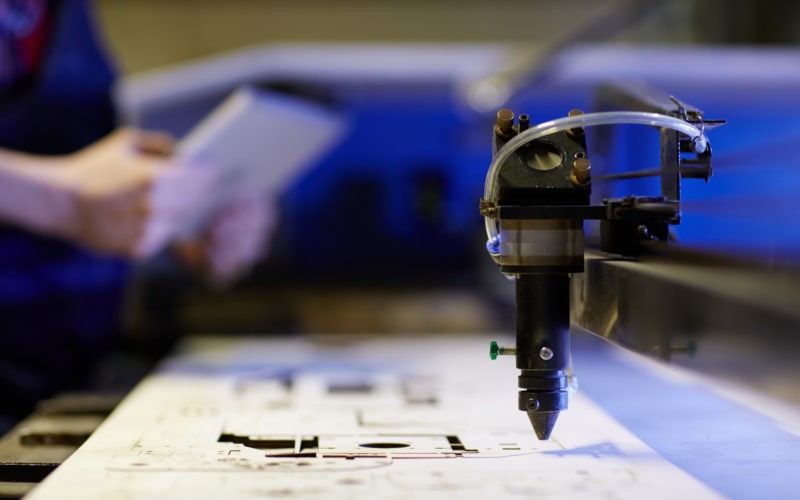Choosing manufacturing equipment is a pivotal step for your business. The right tools can boost efficiency, enhance product quality, and increase profitability. But with countless options on the market, it’s easy to feel unsure about where to begin.
You have to take a structured approach so that you can navigate the process with clarity and confidence. And doing so will help you rest assured that your investment drives long-term success.
In this article, you will find practical steps to help you choose the best equipment for your manufacturing business. So, let’s find out!
Assess Your Needs
Before exploring equipment options, start by identifying your business needs. Ask yourself the following questions:
- What specific tasks or processes will the equipment perform?
- What volume of production do you need to meet your goals?
- Are there any unique features or capabilities required for your products?
For example, if your production requires precision cutting, investing in a CNC plasma table might be ideal. It’s known for its accuracy and versatility in cutting various materials. Connecting with a reliable provider can also help you identify the best features and options for your needs. They can offer expert guidance and tailored solutions to support your business goals.
By understanding your requirements, you can narrow down your choices and focus on the most suitable options.
Evaluate the Quality and Durability
Manufacturing equipment is a significant investment, so you need it to last. Look for machines made with high-quality materials and robust construction. Research brands that are known for their reliability and performance in your industry.
Read user reviews and check testimonials from other business owners. Reviews often reveal real-world experiences with the equipment, including how well it holds up over time.
Additionally, consider asking suppliers about:
- Warranty terms
- Maintenance schedules
- Availability of replacement parts
This information will help you understand the equipment’s long-term value.
Consider Your Budget
Budget plays a crucial role in choosing manufacturing equipment. While it might be tempting to go for the cheapest option, it’s not always the best choice. Equipment with a low upfront cost may end up costing more in the long run due to frequent repairs or inefficiencies.
Instead, focus on the total cost of ownership (TCO). TCO includes:
- Purchase price
- Installation costs
- Operating costs (energy, labor, etc.)
- Maintenance and repair expenses
Comparing TCO will give you a clearer picture of which equipment provides the best value for your money.
Look Into Automation Options
Modern manufacturing equipment often comes with automation features that boost productivity. Automation reduces the need for manual intervention, minimizes errors, and speeds up production.
Evaluate whether investing in automated systems will benefit your business. For instance, an automated CNC plasma table can save time and ensure consistent quality. Similarly, specialized packaging solutions like K-cup filling and sealing machines offer fully automated processes for producing single-serve coffee capsules, helping manufacturers expand into growing markets with minimal labor costs. While automation may require a higher initial investment, it often pays off through increased efficiency.
Prioritize Energy Efficiency
Energy-efficient equipment reduces operational costs and supports sustainability. Look for machines with high energy ratings or certifications indicating eco-friendly design.
Ask suppliers about:
- Power consumption levels
- Energy-saving modes
- Emissions or environmental impact
By choosing energy-efficient equipment, you can lower your utility bills and contribute to a greener planet.
Test Equipment Performance
Before making a final decision, test the equipment whenever possible. Many suppliers allow demonstrations or trials. This hands-on experience will give you a better idea of how the machine operates and whether it meets your expectations.
Pay attention to:
- Ease of use
- Speed and accuracy
- Noise levels
Testing ensures that you’re confident in your investment before committing to it.
Factor in Scalability
Your business will grow, and your equipment needs might change. Choose machines that can scale with your business. Modular designs, for example, allow you to add or upgrade components as needed.
Think about your long-term goals and how the equipment fits into your vision. Investing in scalable equipment now can save you from purchasing entirely new machines later.
Ensure After-Sales Support
Reliable after-sales support is vital. Even the best equipment can face issues, and having access to prompt service minimizes downtime.
Before purchasing, ask suppliers about:
- Technical support availability
- Training programs for your staff
- Service response times
Good after-sales support ensures your equipment runs smoothly and reduces unexpected disruptions.
Research Compliance Standards
Compliance with industry regulations and safety standards is non-negotiable. Equipment that doesn’t meet these requirements could lead to fines or operational shutdowns.
Ensure that the machines adhere to:
- Local and international safety regulations
- Environmental standards
- Industry-specific certifications
Double-checking compliance protects your business from legal and operational risks.
Final Thoughts
Choosing the best manufacturing equipment for your business doesn’t have to be daunting. Just be sure about your needs, focus on quality, and consider long-term value so you can make informed decisions. Finally, ensure compliance and secure, reliable after-sales support to keep your operations running smoothly. Taking these steps will improve your productivity and position your business for sustained success. So start with careful planning, and you’ll make an investment that pays off for years to come.












